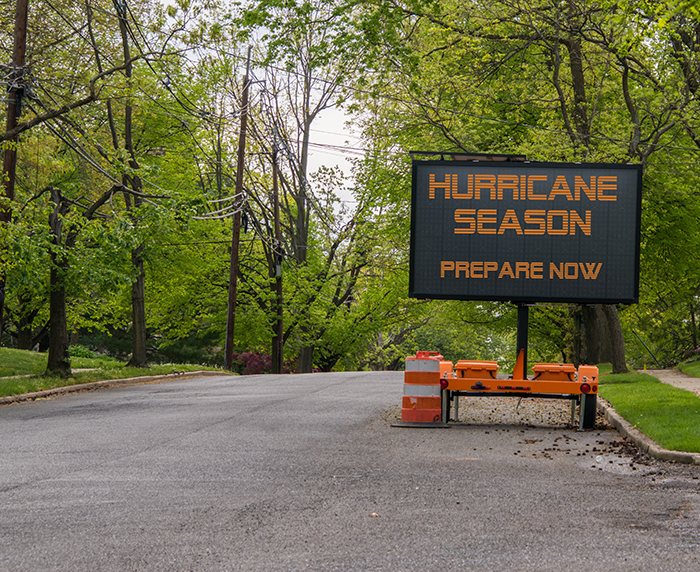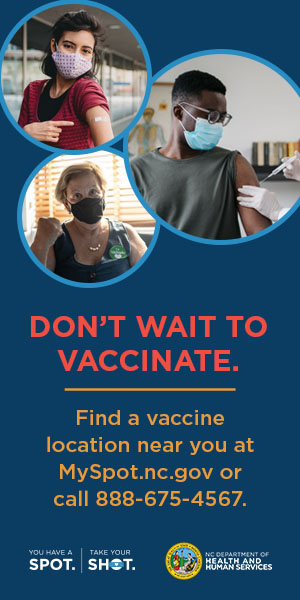
Be prepared for hurricane season

Hurricane season begins in June and extends through November. Such storms begin to form off the coast of west Africa and traverse east to west across the Atlantic Ocean. The National Oceanic and Atmospheric Administration's (NOAA) Climate Prediction Center has forecast another above normal hurricane season.
What a year it has been. COVID-19 has worn us down to a frazzle as we battle the fourth wave of this virus. Now Hurricane Ida has made us aware that hurricane season is upon us. The strength of Ida’s winds and the force of the rains she rendered upon the gulf coast states of Louisiana and Mississippi remind us of the magnitude of Mother Nature’s fury.
Have you considered your preparedness for adverse weather? We may be fatigued due to COVID-19 but we can’t ever ignore the possibility of being affected by the gale force winds and rain from a hurricane.
The Atlantic hurricane season begins June 1 through November 30. Such storms begin to form off the coast of west Africa and traverse east to west across the Atlantic Ocean. The National Oceanic and Atmospheric Administration’s (NOAA) Climate Prediction Center has forecast another above normal hurricane season.
The Centers for Disease Control and Prevention (CDCP) states that we cannot stop a tropical storm or hurricane but we can take steps to protect ourselves and our families. Now is the time to plan. CDC also recognizes that planning for adverse weather conditions may be a little different this year as we continue to protect ourselves from the COVID-19 pandemic.
To prepare for a hurricane it is important to keep handy a printed list of emergency phone numbers in a Ziploc bag to protect it from water. Consider making sure those numbers are in your phone. Make copies of important papers such as birth certificates, social security cards, passports, or other legal documents way before a disaster hits.
It is important to make sure you have received all of the necessary COVID-19 vaccinations and boosters. Do your best to maintain social distancing.
Do you have emergency supplies? Make sure you keep a stock of disinfectant wipes and sprays, bar or liquid soap, hand sanitizers containing at least 60 percent alcohol and multiple clean masks for everyone two years of age and older. Masks should have multiple layers and fit snugly against your face.
If there is a power outage, have batteries, battery packs for your phone, a weather radio, flashlights, and a can opener. If the water supply is compromised, it is good to maintain an emergency stock of bottled water. Don’t forget the canned goods and pre-packaged food. It is also important to make sure you have at least seven days of all your medications ready to go. Have a bag pre-packed with at least a couple sets of clean dry clothes. If you have young children, make sure you have a supply of diapers, baby food and formula.
What is your family plan? What will you do? Where will you go? Consider having a friend or family outside of your immediate area as a family contact for everyone. So, if family members get separated there is someone to call. Where will the family meet if the emergency happens when you are not all at home? Who is responsible for what? Who will get supplies?
Think about having a planned route of travel that that your family members are all aware of. If you plan to go to a shelter, check closely to see if it is actually open. In this era of COVID- 19, shelter locations may have changed.
How will you care for older adults? Who will check on them? How will you collect them if evacuation is needed?
It will likely be necessary for you to prepare a “kit” for each senior that contains their medications and important documents.
Don’t forget about our fur babies. Your plans should include how you will care and transport your pets. Do not leave them behind. They will require food, water, and medications too.
Be a good neighbor and make sure that your neighbors are okay but remember to stay at least six feet away.
Keep your car filled with gas especially when the weather is inclement. If the electricity is out, you will not be able to pump gas. Keep blankets and other emergency supplies in the cars for that true emergency when you are not able to get back home. Keep a stash of cash on you. If electricity is out, getting cash, using credit and debit cards at ATM’s may be difficult.
Preparation wise, there is a lot to think about as we are now seeing this year’s hurricanes hit with full force. Planning is the key. Do not wait until an emergency is upon us. Please be proactive. Many of the aforementioned ideas on how to prepare for a hurricane can be found on the CDC’s website. View it and prepare.


